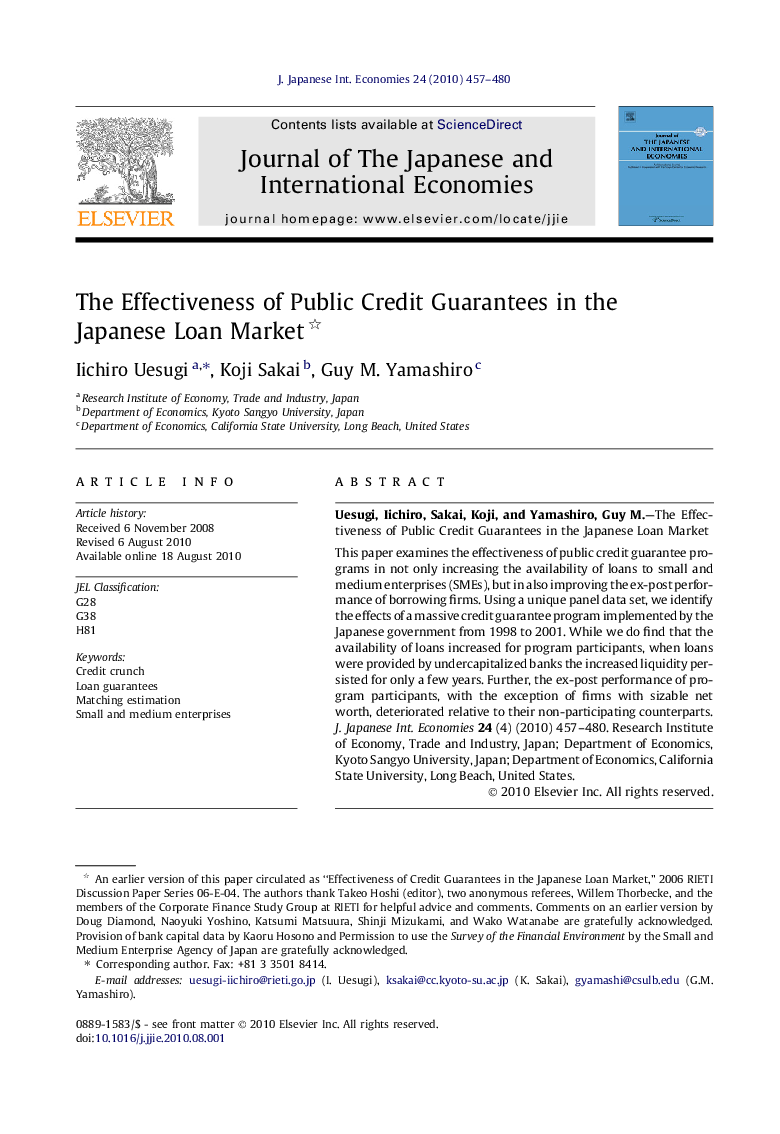| Article ID | Journal | Published Year | Pages | File Type |
|---|---|---|---|---|
| 965025 | Journal of the Japanese and International Economies | 2010 | 24 Pages |
Abstract
This paper examines the effectiveness of public credit guarantee programs in not only increasing the availability of loans to small and medium enterprises (SMEs), but in also improving the ex-post performance of borrowing firms. Using a unique panel data set, we identify the effects of a massive credit guarantee program implemented by the Japanese government from 1998 to 2001. While we do find that the availability of loans increased for program participants, when loans were provided by undercapitalized banks the increased liquidity persisted for only a few years. Further, the ex-post performance of program participants, with the exception of firms with sizable net worth, deteriorated relative to their non-participating counterparts.
Related Topics
Social Sciences and Humanities
Economics, Econometrics and Finance
Economics and Econometrics
Authors
Iichiro Uesugi, Koji Sakai, Guy M. Yamashiro,
